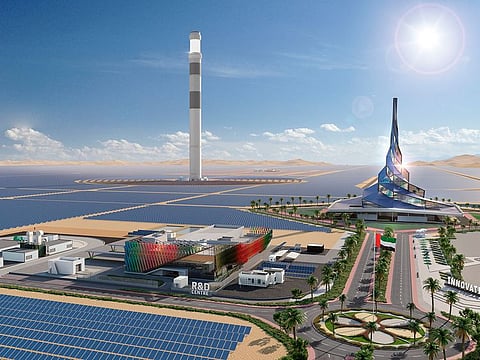UAE is a leader in renewable energy: EIC report
Report highlights UAE’s energy mix, including oil and gas, nuclear, and hydrogen projects

London: The UAE, a key conventional energy producer, has “set up very progressive plans to produce more of its power from clean energy”, a report said on Thursday.
In a report titled ‘UAE: EIC Country Report – November 2022’, the Energy Industries Council highlighted how the country’s hydrogen and nuclear projects could make it a significant player in the global transition to clean energy.
“The UAE offers a great mix of energy projects for businesses from around the world and has indeed attracted some of lowest bids for solar energy projects in the history of the industry,” said Ryan McPherson, EIC’s Regional Director for Middle East, Africa, Russia, and CIS.
The report highlighted the UAE’s hydrogen developments, saying that as of October 2022, the country has six projects under development that could see a combined capital expenditure of about $1.66 billion. “The UAE could be a key player and deliver 25 per cent of the production of the global low-carbon hydrogen market by 2030,” the report said.
The UAE, home to the headquarters of the International Renewable Energy Agency (IRENA), will host the 28th session of the Conference of the Parties (COP 28) in November 2023. The country has the world’s fifth largest proven oil reserves at about 111 billion barrels.
On nuclear power, the report states that the fourth and last unit of the UAE’s nuclear power plant is expected to start operation in 2023 as it’s currently undergoing final stages of commissioning.
While the UAE’s conventional thermal power plants are largely fired by natural gas -- almost 86 per cent of the installed capacity, the country has a combined installed capacity of close to 3 gigawatts generated from solar and energy-from-waste power plants.
“The country is the pioneer of the renewable energy sector in the GCC,” the report says. The UAE plans increase the share of clean energy to 50 per cent of its power mix by 2050.
The Gulf nation plans to ramp up its oil production to five million barrels per day by 2025, having brought forward the target by five years. By 2030, this capacity is planned to reach six million barrels per day.
Gas, a key energy transition fuel, is another resource the UAE is developing heavily. “Abu Dhabi has an abundance of untapped gas resources which could be utilised to power the UAE for many decades,” the report said. As of 2020, Abu Dhabi’s recoverable unconventional gas reserves were estimated at 160 trillion cubic feet (Tcf).



